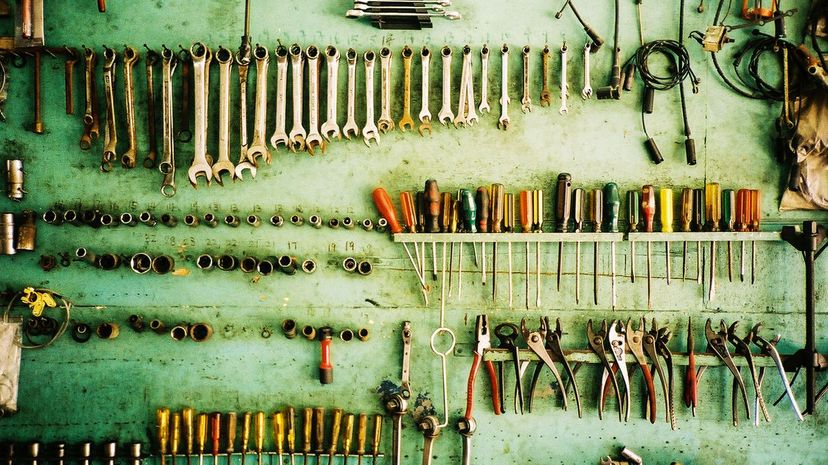
About This Quiz
THIS IS NOT A DRILL - it's a hammer! No, wait, a screwdriver! Or maybe...?
Regardless of whatever the gadget or gizmo is called, it's no doubt that tools have simplified our existence and even have helped us advance as a species. But how did it all begin? Mankind's relationship with tools may have made us who we are today, as our history of tool creation and usage is one of the first pieces of evidence of human evolution. Our intricate use of tools is even a major aspect that differentiates us from other species. Some animals will use tools to get food, such as chimpanzees who have been known to break open nuts by using stone or wood as a simple hammer. Though as humans, we have learned to alter how we create tools overtime in order to make them more efficient.
Some of the earliest tools used by humans were made from stone and discovered in Ethiopia. Such findings date back more than 2.5 million years ago! These utensils (called "Oldowan tools") were some of the first known manufactured stone tools, and they were shaped by a process called "knapping," which involved hitting the stones against a harder surface that could withstand the impact (such as quartz or obsidian).
We've certainly come a long way since simple stone hammers, and today there are hundreds of different types of tools in a single hardware shop alone! If you find yourself hammering away when it comes to tools, then this is the quiz for you. Think you tool-tally have what it takes? We will give you every tool you need, and you just finish the job by naming all 40. Bet you can NAIL it!
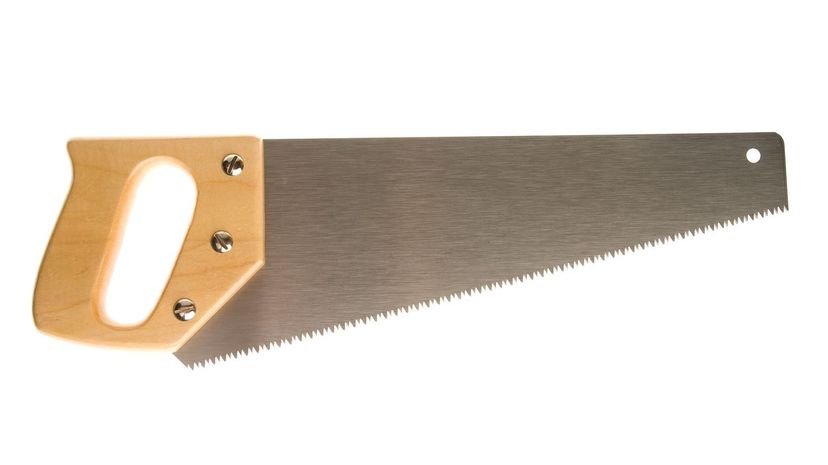
In the past, saws were made to have either "rip" teeth or "crosscut" teeth, with the two different types depending on how wood needed to be cut. Today, manufacturers have essentially eliminated the purpose for either a rip saw or crosscut saw, as they now more commonly make saws that are able to universally cut wood.
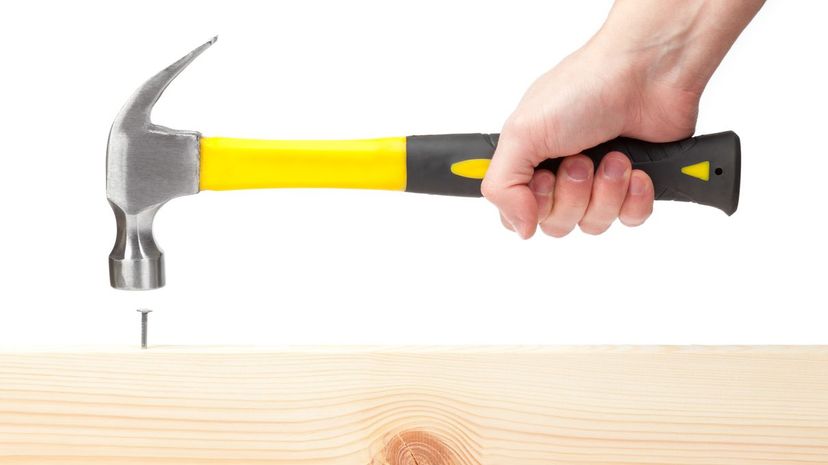
Did you know that the hammer may be the oldest tool humans are credited with creating and using? A hammer's archaeological record shows that in its most basic form, it may date back as long as 3.3 million years!
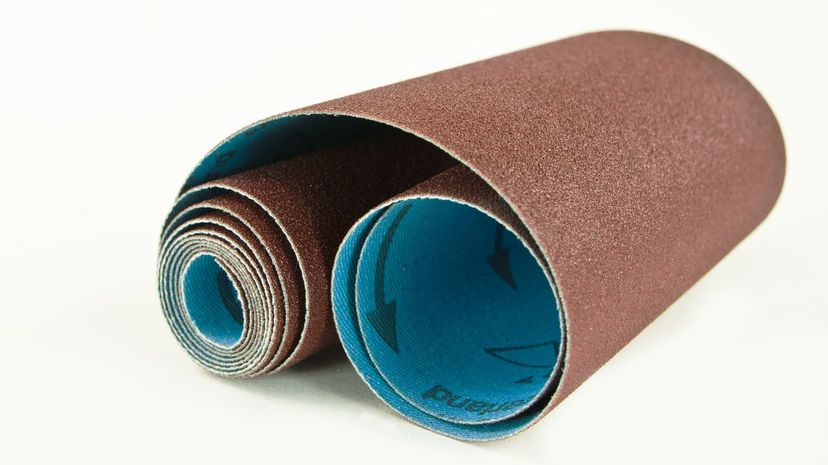
Some of the very first uses of sandpaper occurred during the 13th century in China, with natural gum "gluing" bits of seeds, crushed shells and sand to parchment paper. In Japan, the rough horsetail plant can be boiled and dried and then used as a way to polish material (think like an all-natural sandpaper).
Advertisement
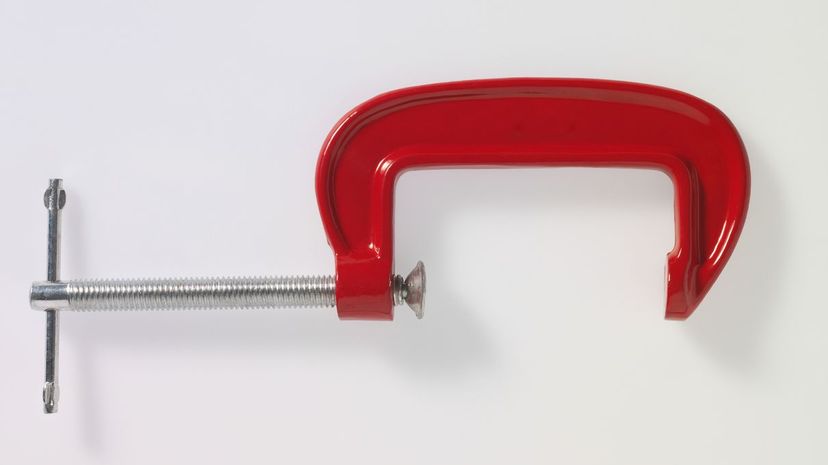
Did you know there are many different types of clamps, with purposes ranging from temporary or permanent usage, and even some being used in the medical field? For instance, a Foerster clamp is a surgical clamp used during thoracic surgery to remove lung tissue.
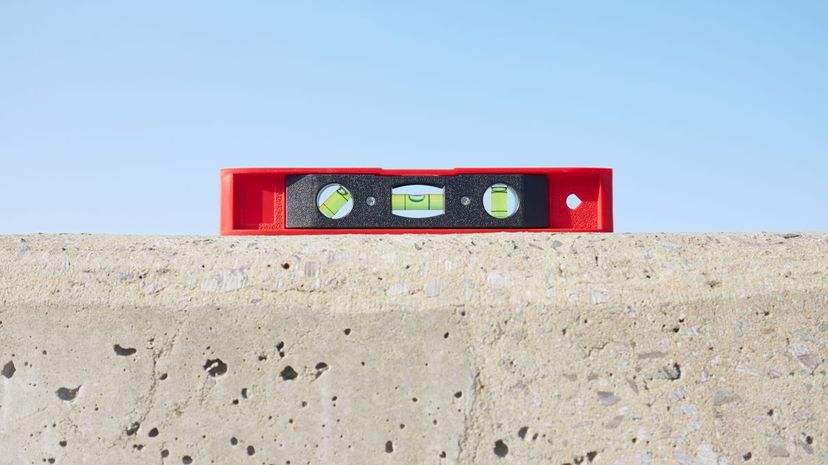
Alcohol is typically used inside a level due to it having lower viscosity and surface tension in comparison to water (which helps the bubble travel inside the tube more quickly and settling more evenly). For something to be even horizontally, it's known as "level," though for vertical purposes, it's known as "plumb."
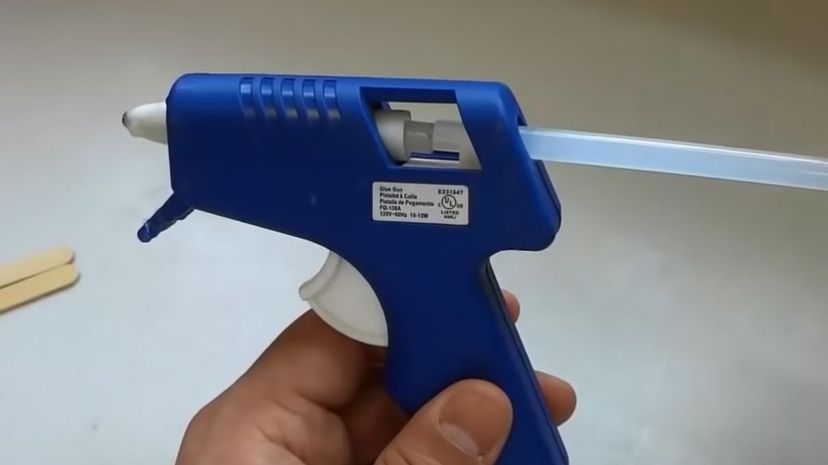
In order to preheat, hot glue guns need to be turned on five to 10 minutes before using, and then the stick of glue turns into a thick, liquid-like substance used to bind materials together. One uncommon hack for hot glue guns is their ability to make your shoes nonslip (simply glue a few lines to the bottom of your shoes and you're good to go!).
Advertisement
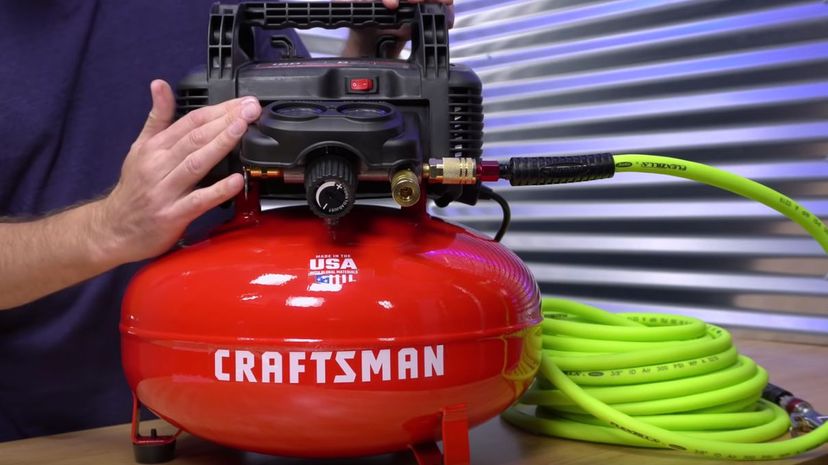
An air compressor works by converting power into the energy stored in pressurized air. There are different types of air compressors depending on the amount of pressure being delivered, including low-pressure (150 psi or less), medium-pressure (151 to 1,000 psi) and high-pressure (greater than 1,000 psi) air compressors.
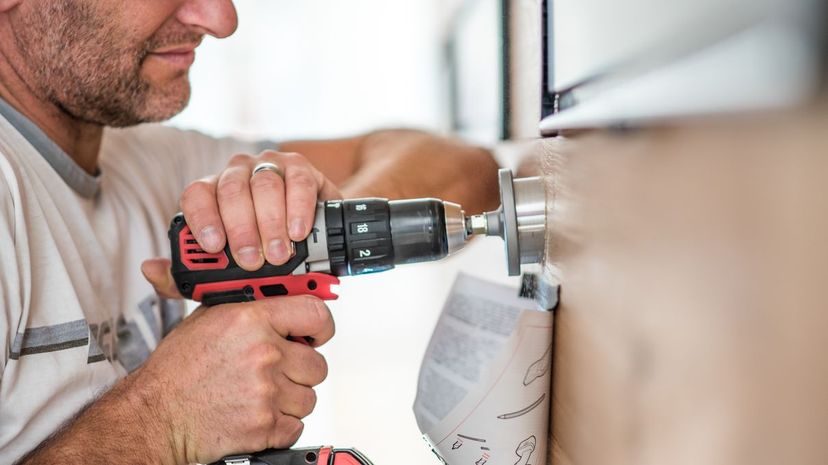
A hole saw is used to cut holes, with the different makes and models producing depths that vary anywhere from typically 7/8 of an inch to a whopping 14 inches. If you use an arbor extension (a long, steel rod) in combination with a hole saw, you can cut much deeper.
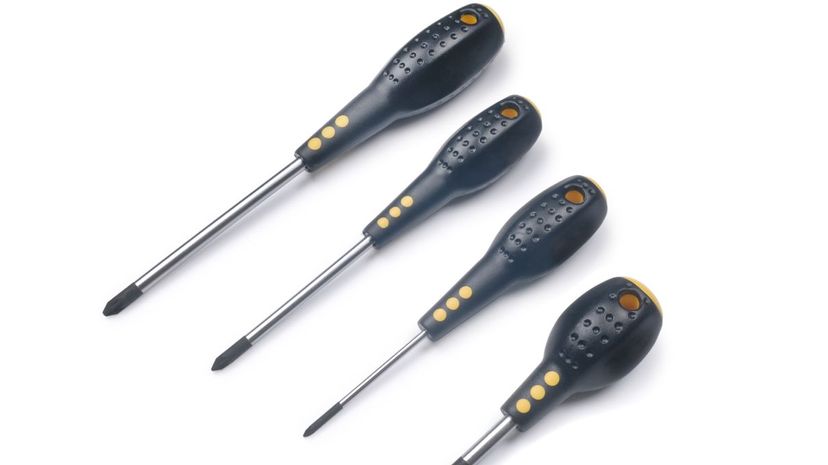
The Phillips screwdriver was invented by Henry Phillips in the early 1930s in the U.S. Did you know that one hack for using a screwdriver to get out stripped screws is by using a rubber band over the screwdriver's head to remove it? (It helps with grip!)
Advertisement
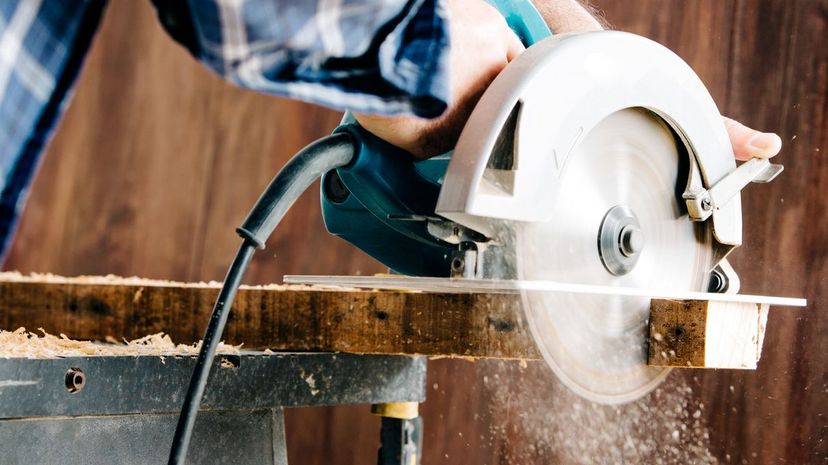
Did you know that a woman named Tabitha Babbitt is credited with creating the first circular saw in 1810? In order to make consistent, precise cuts with every movement of the saw, she thought to attach a circular blade to a spinning wheel.
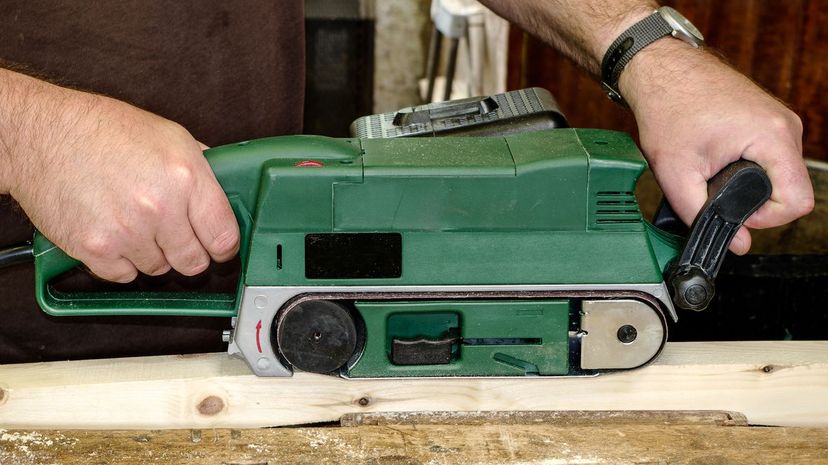
Did you know people use belt sanders as more than just tools? These tools even have their own competitive sport called "belt-sander racing," where contestants race one another by riding belt sanders!
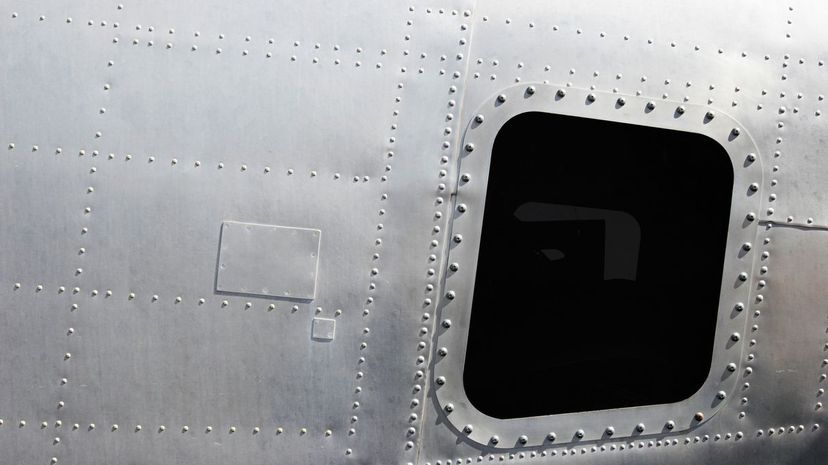
Did you know that the Eiffel Tower has more than one million rivets in its structure? By August in 1889, 22,000 riveters were being placed every week by 20 teams of riveters (with each team comprised of four people).
Advertisement
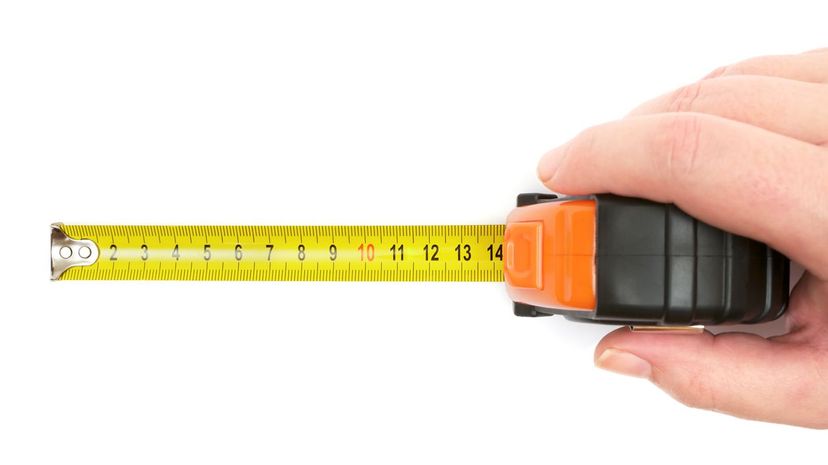
There are two main types of tape measures: long and spring return pocket. Long tape measures typically range from 25 to 500 feet in length and are primarily used by builders and engineers, while spring return pocket tape measures are much shorter and usually fit in pocket-sized cases.
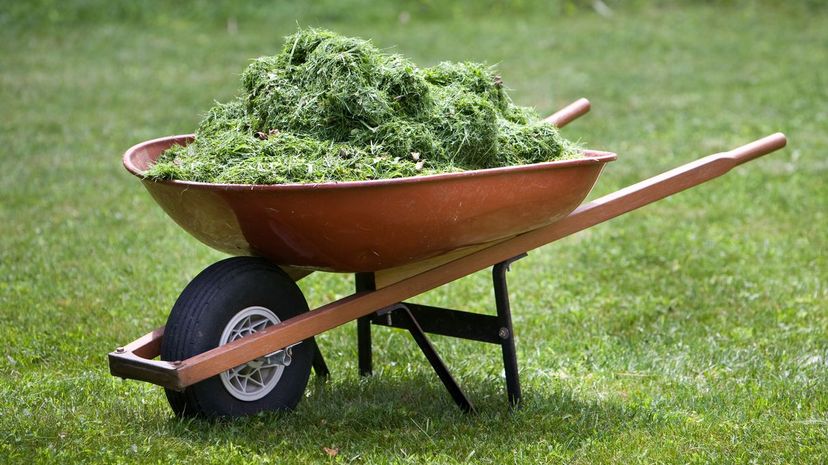
The wheelbarrow we know and love today came from China, with speculations as early as 100 B.C. These early versions of the wheelbarrow were intended for carrying big loads of material over long distances.
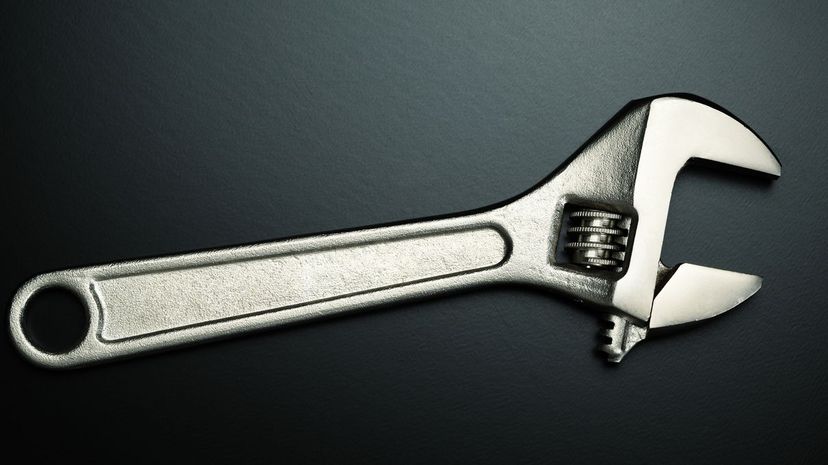
The crescent wrench (or its other names, "adjustable spanner" and "adjustable wrench") was invented by Edwin Beard Budding in the early 1800s. Edwin Beard Budding is also credited with inventing the lawnmower.
Advertisement
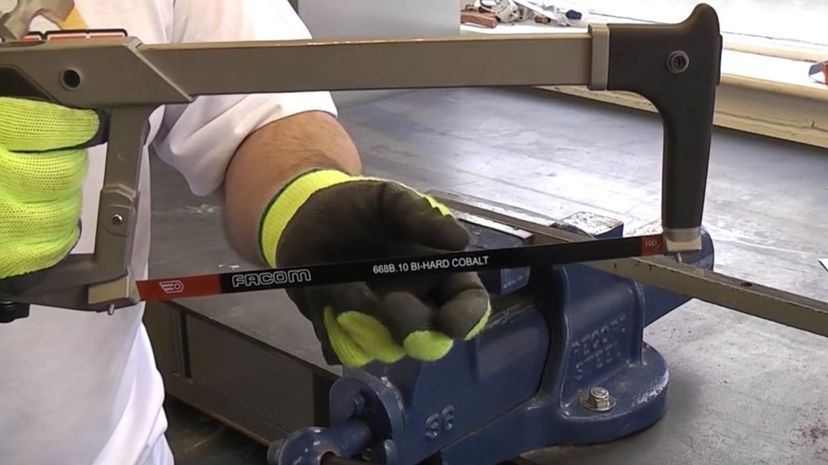
Though hacksaws were created to cut through metal, these tools are also able to cut through a multitude of other materials (even plastic). A hacksaw with a half-sized blade is known as a "junior hacksaw."

Chisels are often used by construction workers to shape wood and stone for building purposes. These tools are also popular in the sculpting community, with chisels being used by artists to alter the shape of stone, wood or marble to make statues.
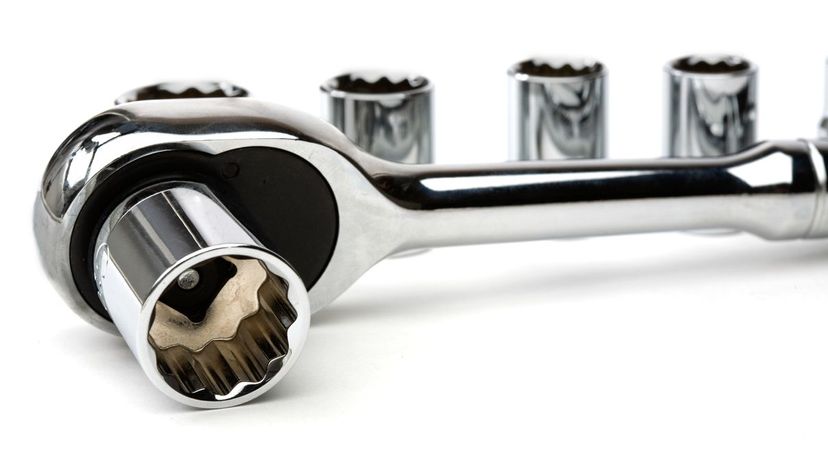
There are a variety of different kinds of socket wrenches, with a racketing socket wrench (or just ratchet) being the most common type. One of the benefits socket wrenches have is the ability to just swap out interchangeable sockets rather than having a bunch of different wrenches.
Advertisement

A box cutter is a type of utility knife with a retractable blade that is able to be adjusted and replaced when needed. The first kind of utility knife was a fixed-blade, and it was made from stone upward of 500,000 years ago.
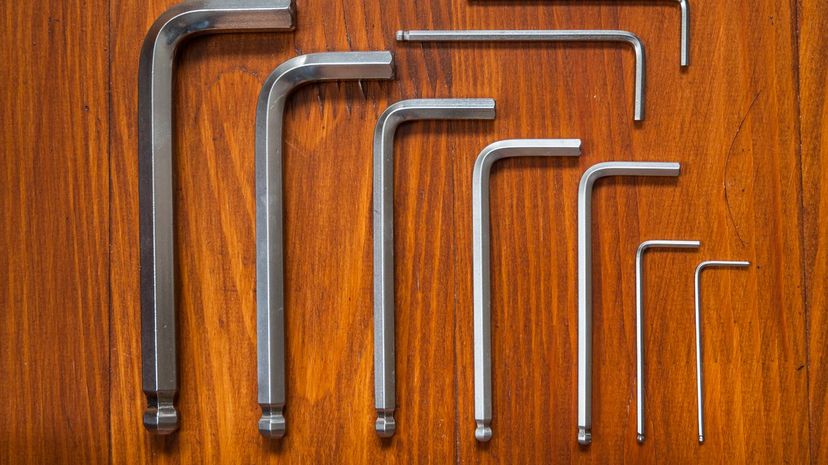
If you've ever gotten furniture from IKEA, you've likely found one of these in the tool kit. This tool is known for being easy to use, lightweight and inexpensive to make, which makes it perfect for including in build-it-yourself furniture kits. If one side of a hex key becomes worn, simply saw off the tip to reveal a practically new tool.
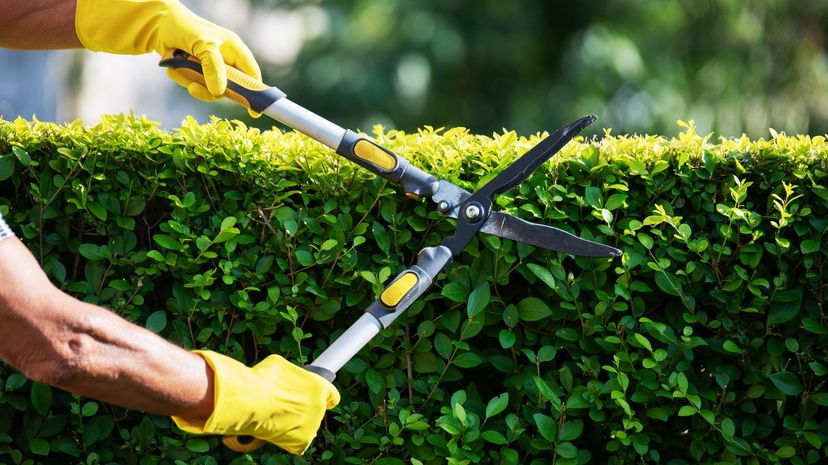
One of the main differences between scissors and shears is length, with scissors typically being less than six inches long and shears measuring more in length. Shears are made for more heavy-duty cutting jobs compared to scissors.
Advertisement
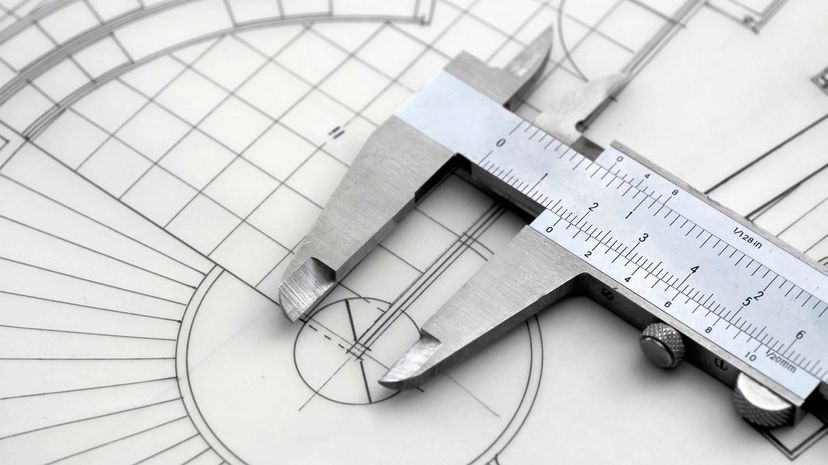
There are many different types of calipers, including micrometer, dial, vernier, divider and even digital. The assumed first caliper was discovered off the coast of Italy in the remains of a shipwreck dated during the 6th century B.C.
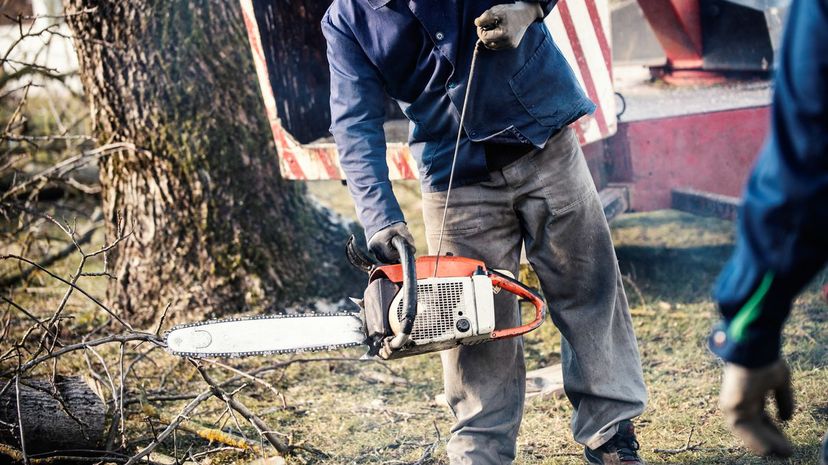
Did you know that certain chain saws are able to cut through materials like concrete and brick, and some of these tools have even been made to work underwater? The very first chain saw was created by a German physician to help with childbirth. Talk about going into tough labor!
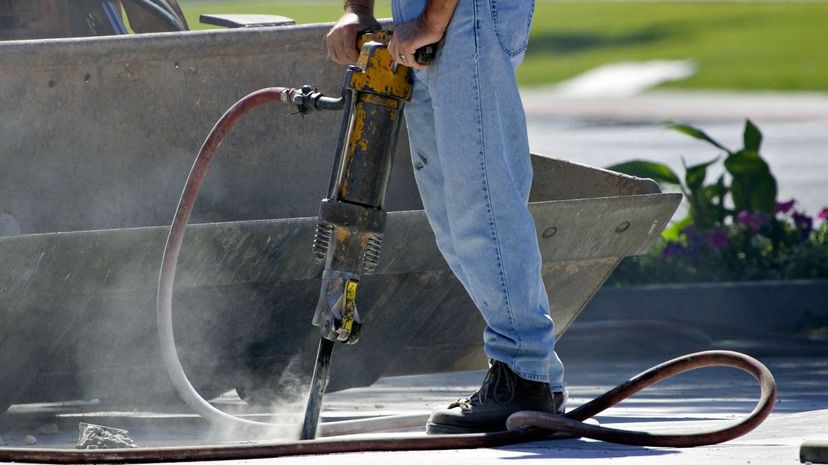
A jackhammer is a electro-mechanical tool that is essentially a hammer combined with a chisel, and the tool is used to break apart concrete, pavement and other rock-like materials. The jackhammer was invented in 1892.
Advertisement
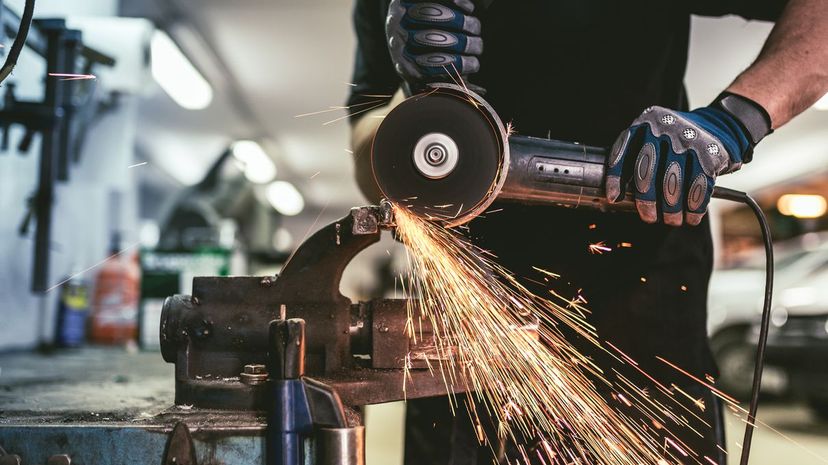
Angle grinders are often used for construction jobs and in metalworking, with this tool's main purposes being to polish and remove excess material from something. Other names for an angle grinder include disc grinder and side grinder.
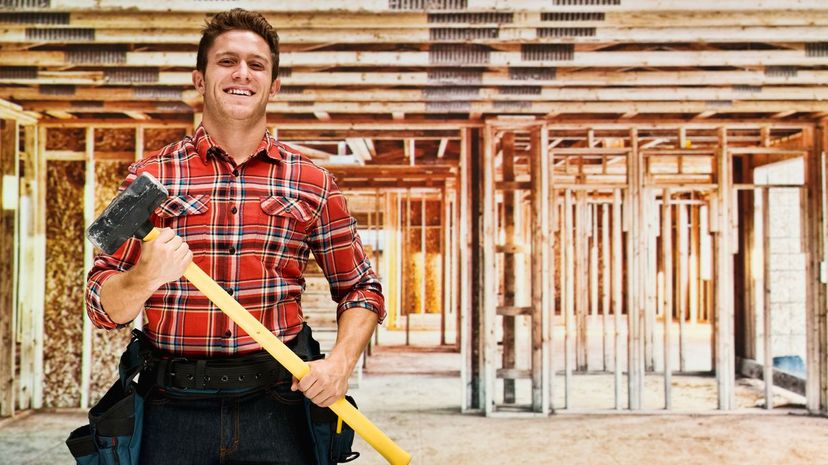
Sledgehammers are designed to put out more force than regular hammers, with the weighted head of a sledgehammer combined with its long, slender handle allowing it to gain more momentum with each swing. The word "sledgehammer" comes from the word "slægan," which is the Anglo-Saxon word meaning "to strike violently."
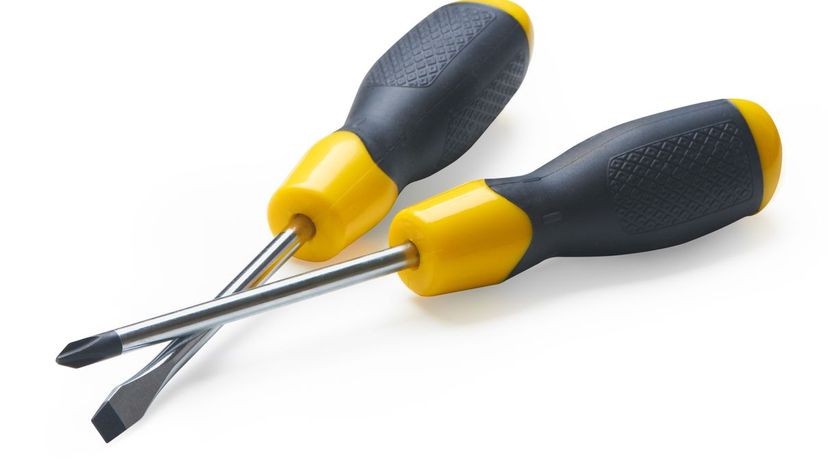
Did you know that the earliest documented use of a screwdriver dates as far back as the late 1400s? This first documentation of its use is written in the Medieval Housebook of Wolfegg Castle.
Advertisement
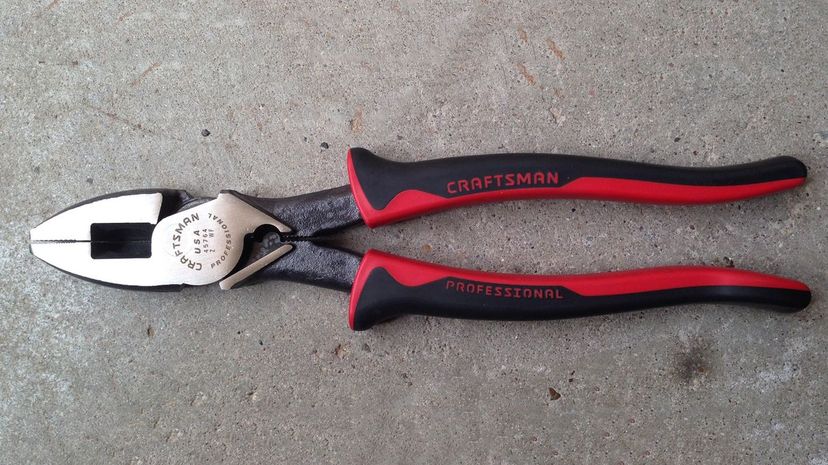
Unlike other pliers, Lineman's pliers are special for their ability to withstand high voltages (some even up to 1,000 volts!). This makes this tool an asset with electrical work, where it is used to cut, straighten, bend and twist wires for splicing.
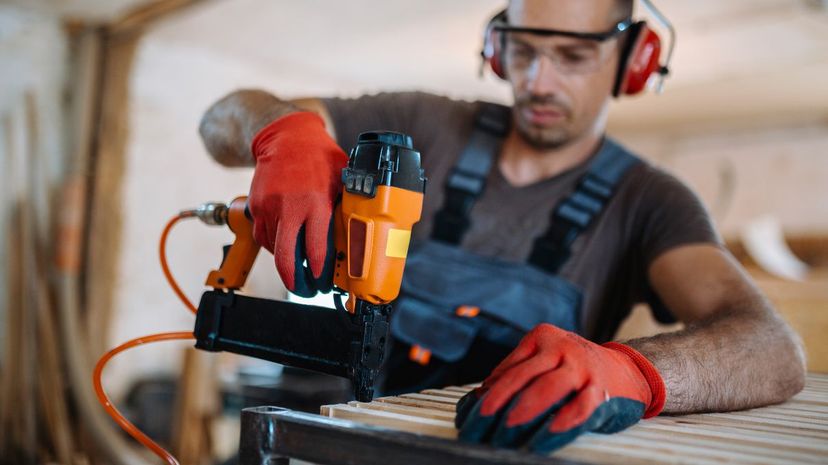
Nail guns are a popular choice for builders, as they are much quicker than nailing by hand with a hammer. Though nail guns are convenient tools, they are still dangerous, with roughly 42,000 people having to go to the emergency room for nail gun-related injuries in the U.S. alone!
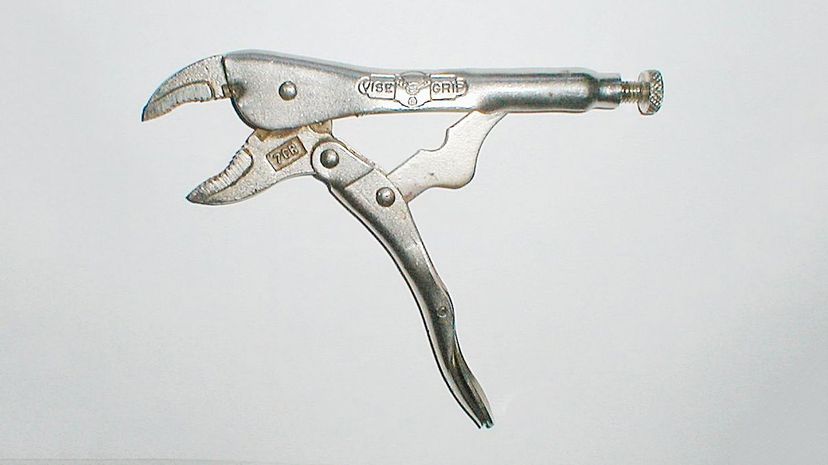
In the U.S., locking pliers are usually referred to as "Vise-Grips," but in the U.K., you may more likely hear them called "Mole grips," with the differences connected to the main brands that sell this tool. In 1924, the first "Vise-Grips" were invented in Nebraska.
Advertisement
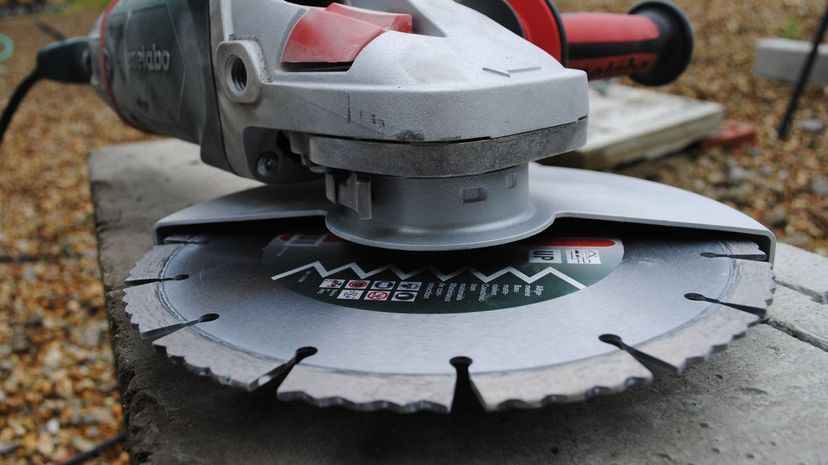
A diamond tool is a tool used for cutting, with - you guessed it - diamonds engraved into the tool's blade. Being one of the hardest materials on the face of the planet, diamond can be a much better alternative for these types of tools compared to other abrasives.
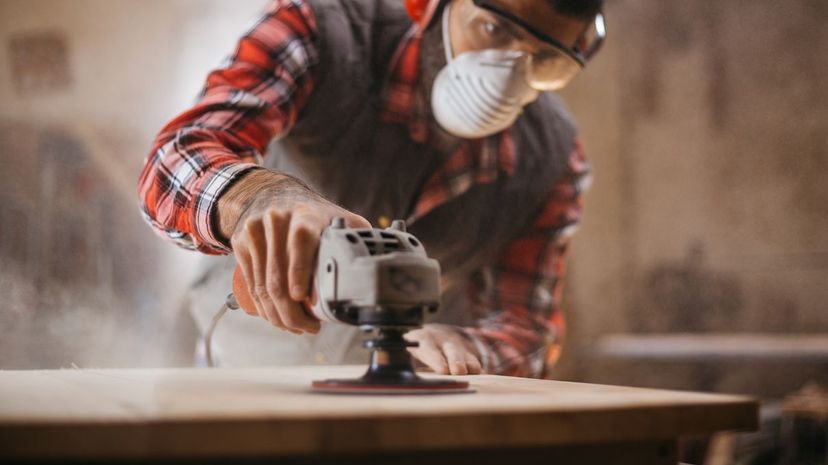
Sanders are primarily used in auto shops for body repair (with these types of sanders typically working by using compressed air) and woodworking (which are usually electrically powered). Some different types of woodworking sanders include flap sanders, belt sanders, disc sanders and many more.
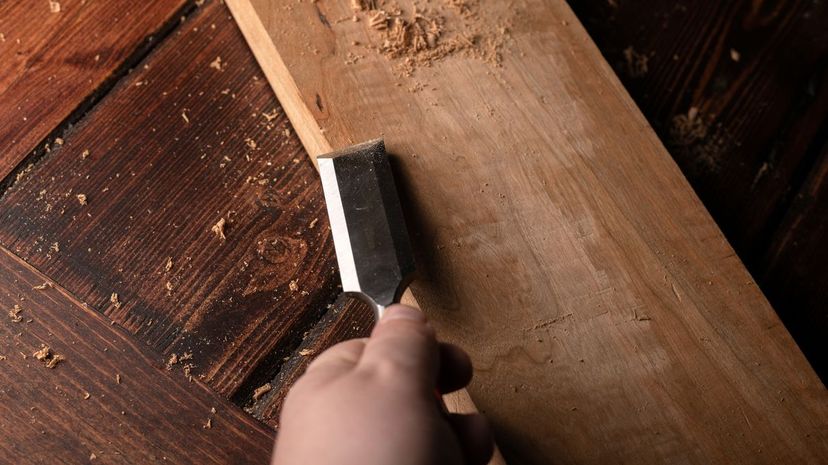
The most common types of planes are hand planes and power planes. Hand planes rely on human force to cut wood, and the power planes are motorized and made for larger jobs. There are even Japanese planes (or "kannas"), which work by being pulled toward the body instead of being pushed away like with standard planes.
Advertisement
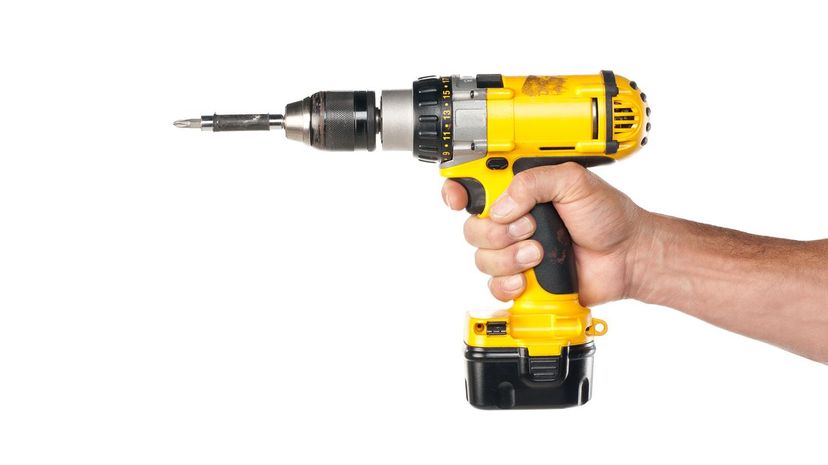
The differences in drills vary by size, speed and power, and there are even special drills for medicinal items, miniature objects and outer space purposes. The world's first portable handheld drill was created in Germany in 1895 by two brothers (Carl and Wilhem Fein).
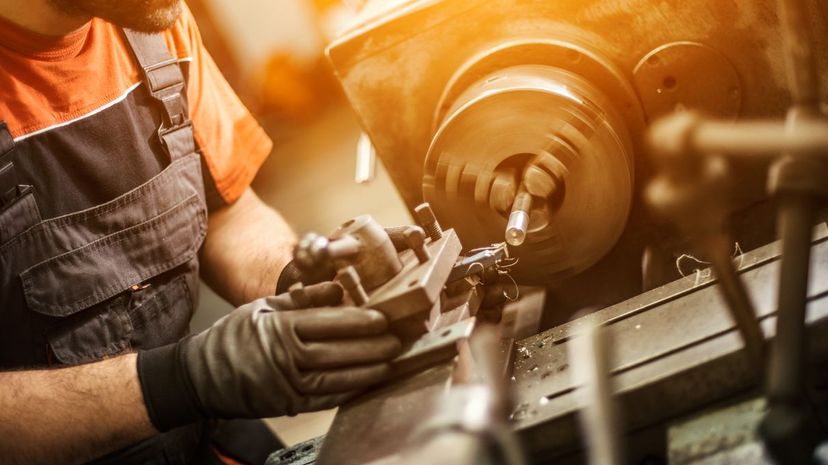
Early versions of the modern-day lathes were first seen during the 13th/14th century B.C. timeframe in Ancient Greece, though these tools were much more basic back then. Lathes can be used in woodworking, and ones designed to do so can turn at up to 1,400 revolutions per minute.
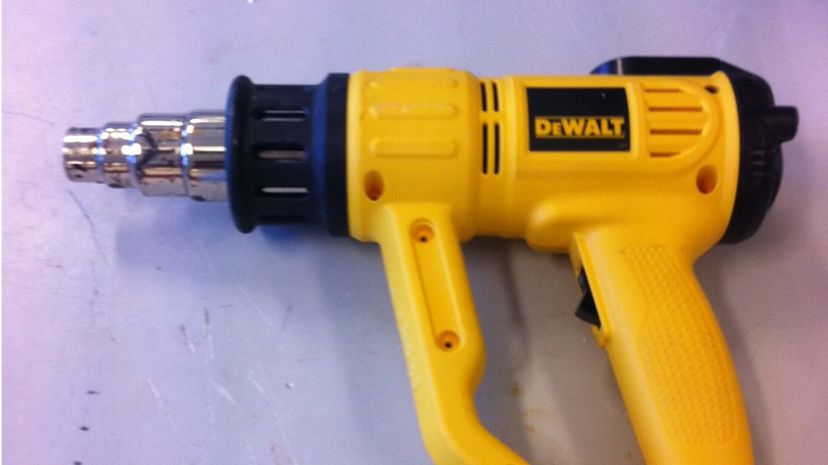
Typically, the hot air produced by a handheld heat gun reaches between 200 to 1,000 degrees Fahrenheit, though some devices are known to reach as high as 1,400 degrees! Other names for heat guns include hot air stations or hot air guns.
Advertisement
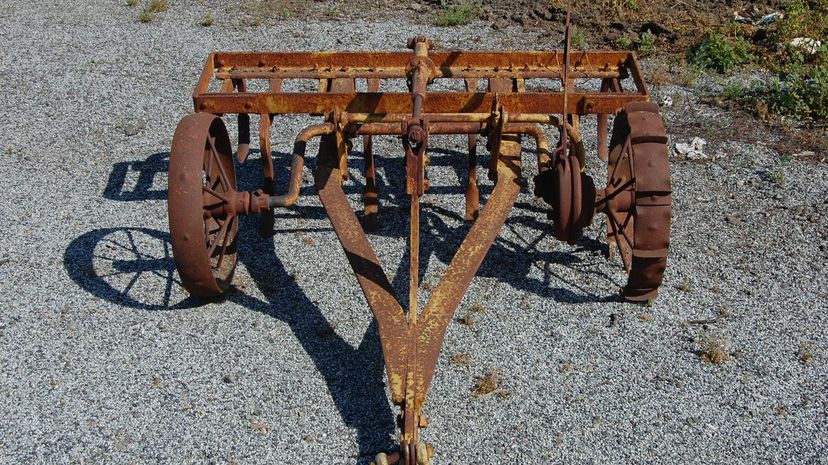
Cultivators are used to get rid of weeds between rows of crops, making them vital to farming. During the 1850s, there were hundreds of different types of cultivators that were designed to be drawn by horses.
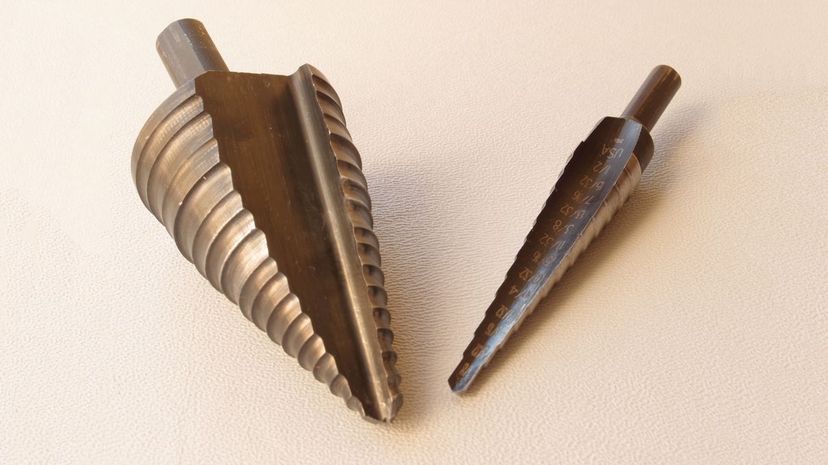
As a fairly recent invention, Harry C. Oakes first created and patented the unibit in 1973, where at first it was exclusively sold by the Unibit Corporation. Another name for the unibit is the "step drill bit."
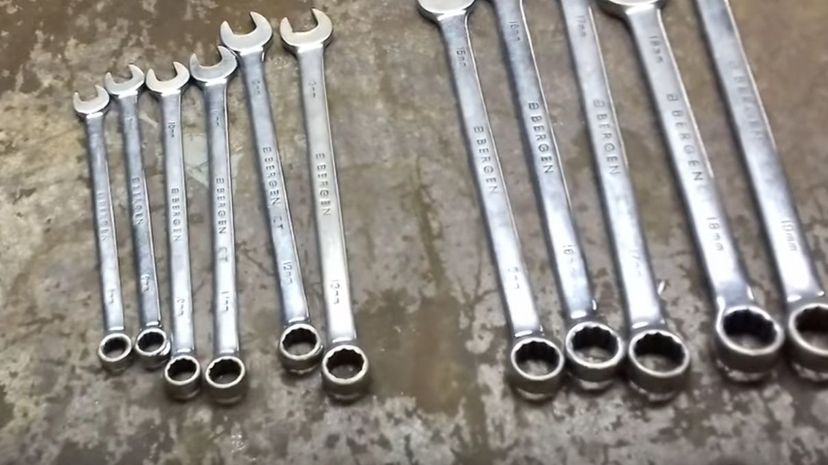
Ring spanners have heads on both sides of the tool, and they are great for removing nuts or bolts that have been tightened too much. Bi-hex (or 12-point) headed ring spanners are the most common type of these tools.
Advertisement
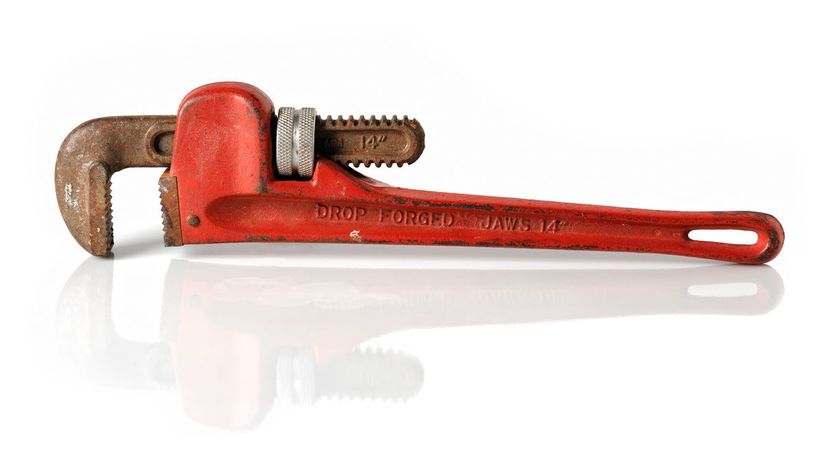
A monkey wrench is also known as a "Ford wrench," as this tool is included in the tool kits for every Ford Model A vehicle (produced from 1927 to 1931). Though monkey wrenches are not too commonly used now, they are known for being a treasure among the antique collecting community.